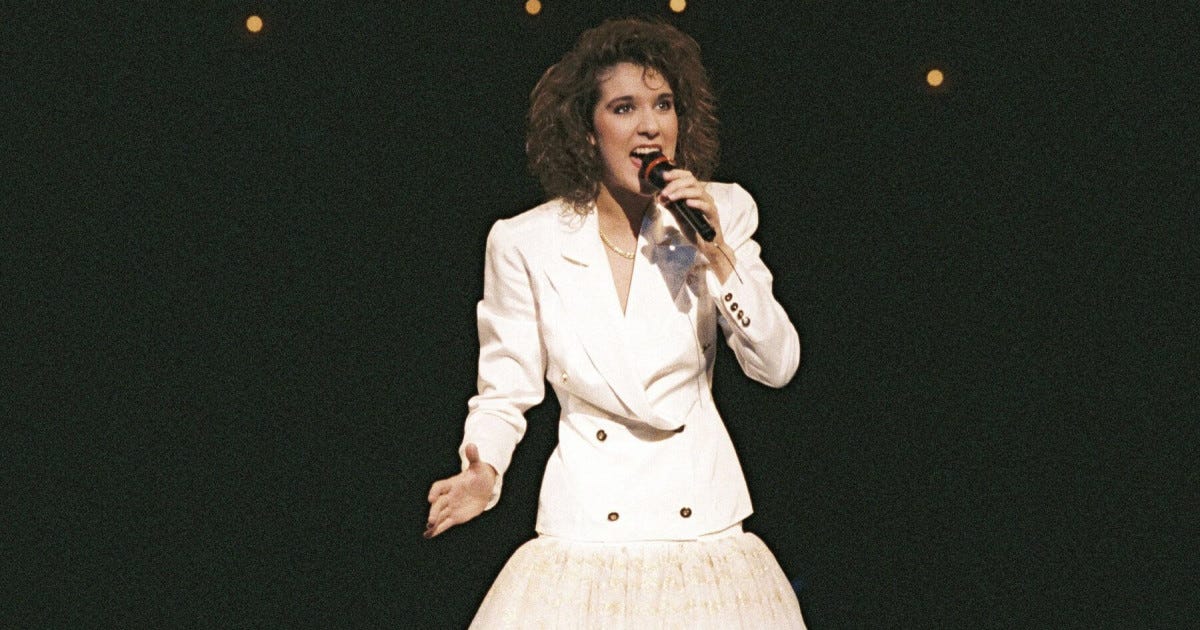Preparing for the Madness that is Eurovision
There's a war in Europe but that won't stop the (ridiculous, catchy, bananas) music.
A couple of years ago, Brad and I were in a dark piano bar in Sitges, Spain (gay), when we asked to close our tab and the bartender flat out refused.
“You should stick around,” he said. “I think you’ll enjoy the show.”
We did – both stick around and enjoy the show. It was a tour-de-cabaret of Eurovision songs by SuRie, the 2018 UK entrant to the contest. (She placed 24th.) It was intimate — at one point, when I went to use the restroom, I came back to find SuRie in my seat, next to Brad. (Her brother had taken a turn at the piano.) The crowd, almost entirely Brits on holiday, knew every song and every Eurovision story she referenced. They cheered when she started the chords of any Eurovision favorite. They groaned when she brought up the fact that the UK has not won since 1997. By the end, we were hooked; our welcome into the Eurovision family was complete.
It’s hard to write about Eurovision in a way that makes sense because, frankly, it does not. The voting is more complicated than the U.S. electoral college; the acts themselves are unhinged. It is decidedly European (which is to say, not American) in that there are no commercials during the broadcast and there is no prize other than a nice statue and the side effect of a career bump.
It started in 1956 as a friendly post-World War II competition in Europe. Bring everyone together through song, was the thought. Perhaps because unity (and pride) is part of the DNA of the competition, or because winning is based on votes across an entire continent, songs often times are built to appeal to the masses. Many have simple lyrics and rhyming patterns, may be made up of multiple languages, or no language at all, with eeeeeee-s ooooooh-s and aaaaahh-s over a hooky beat. The songs are catchy to the point of madness. Study the Eurovision library and you’re bound to wake up in the middle of the night, humming something in Dutch or translated into English, potentially by Google.
If you don’t know Eurovision, you most likely know some of its outputs. “Waterloo” by ABBA won in 1974. Celine Dion won for a song in French, “Ne Partez Pas Sans Moi”, in 1988. (You don’t need to be from the country to represent them in Eurovision. Countries such as France, Iceland and Sweden take it very seriously, hosting contests where the public votes on who to send; Switzerland just called Celine and asked.) Riverdance, that ever-pounding reminder of the mid-90s, was born from Eurovision as part of the cultural display interval act when Ireland hosted in 1994.
This year has quite a few catchy songs that stick in line with favorite themes. There’s Love: General (Sweden’s “Hold Me Closer”; North Macedonia’s “Circle”), Love: Self (Israel’s “I.M.”; Malta’s “I am What I Am”), and the national-pride-displayed-through-native language (Iceland’s "Með hækkandi sól"; the Netherlands’ "De diepte").
Then, of course, there’s the nonsensical and ridiculous. Norway’s “Give that Wolf a Banana” is, I think, inspired by Little Red Riding Hood and features anonymous singers in yellow body suits singing about saving grandma from a wolf’s jaws by offering a banana feast. Latvia’s “Eat Your Salad” ties sustainability to feminine beauty, ambitiously rhyming “pussy” with “juicy”, as in vegetables, in the opening lines. I don’t know how the rest of it goes, because by this point, I’ve skipped it, perhaps for France’s “Fulenn”, sung in the French Celtic language Breton; it’s about witches.

And then there’s Ukraine. Their song, "Stefania (Стефанія)” by folk-rap group Kalush Orchestra, is about honoring mothers and is performed in Ukrainian. It is heavily favored to win. Eurovision prides itself on not being political – it was built for camaraderie after all – but, just like everything else, politics seeps in. (Last year the UK, in the first contest after Brexit, received a total of 0 points; somewhere in Sitges, a crowd groans.) If Ukraine wins, they’ll have the honor of hosting the competition next year. The winning country can also pass this honor off to another location, for reasons such as war.
Eurovision does not tolerate hate or violence. Russia was banned from the competition this year within a day of Ukraine’s invasion, well before the oil boycotts and Ukrainian flag Amazon orders arrived. In clips from qualifying contests across Europe – in those nations that host them – you can see blue-and-yellow flags waving among the native ones. There are so many ways to show solidarity. This week, dancing to a rap song that clocks in at three minutes flat is one of them. So go ahead. Keep your tab open. I think you’ll enjoy the show.


There's something really endearing about the Norwegian entry. It might seem simple and silly, but it feels engineered to make you feel like a care-free kid again and the first verse is so sweet it warms you up like that big hairy coat they sing about. Cut the grandma-eating lyrics and it would fit right in as a Junior Eurovision entry (check "Bzzz" by Bzikebi if you haven't already, it's a cultural reset).